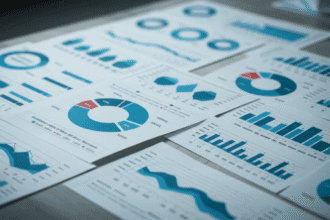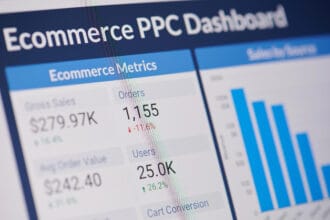It’s no surprise that the amount of data and information that exists – much less is becoming increasingly available – is monumental. In 2010, the internet will be about 1.2 zettabytes in size. Haven’t heard of zettabytes? A zettabyte is one trillion gigabytes. So right now, there is about 1.2 trillion gigabytes, or to help conceptualize that: about 2.6 million trillion mp3s. That’s a lot of information. And the number is rising – fast. In 2008, there were 281 billion gigabytes, and our 2010 number is on track to increase 44-times by 2020.
It’s no surprise that the amount of data and information that exists – much less is becoming increasingly available – is monumental. In 2010, the internet will be about 1.2 zettabytes in size. Haven’t heard of zettabytes? A zettabyte is one trillion gigabytes. So right now, there is about 1.2 trillion gigabytes, or to help conceptualize that: about 2.6 million trillion mp3s. That’s a lot of information. And the number is rising – fast. In 2008, there were 281 billion gigabytes, and our 2010 number is on track to increase 44-times by 2020.
One of the implications of such an exponentially large increase in the amount of information available is the way in which that information is organized, categorized, consumed and shared by people.
Google was one of the earliest to cash in on this question and amazingly derives over 99% of its $24 billion annual revenue just for displaying text ads next to its search results. But not only is there a serious commercial interest in figuring out the best way to categorize data, there are many cultural, governmental, economic and political reasons as well.
For example, resulting from the fact that people are increasingly using the internet to find information on any and all questions that arise on a daily basis, the CDC even started using the geo-location data for flu sympton-related searches in Google to track the spread of the flu because that data was far more accurate than all of the other indicators that were previously available.
But when most people use an entity like Google to search for information – about 120 million searches are performed per hour – there becomes an issue of siloing – or the hyper-personalized categorization and isolation of information. The way that Google organizes its information is a tightly kept secret, and even if it were public, it would be so complicated most people could not make heads or tails of it. However, the ranking of websites appearing in search results plays an enormous role in the actual information we end up finding. That should seem obvious – that the way information is organized influences what information we find – but encyclopedia’s were a very different story.
Humans performed the algorithms to determine where to find the information, and then we would go take the book off of the shelf that seemed the best fit. Our process of finding that information in almost no way at all had an affect on how that information would be organized in future searches. However, when looking for information online, the way in which that information is displayed to us is largely hidden from view and is constantly evolving and changing.
Social-networking sites like Facebook provide an even more potentially compartmentalized experience because we are only seeing information from people that we like enough to be friends on facebook with and aren’t annoyed with enough to hide their updates from our view. Because we are being bombarded with so information constantly throughout our work, social, recreational and even downtimes, we quickly make decisions (like hiding a feed, voting up a link, favoriting an item) that actually significantly impact how future information will be displayed to us. Even just visiting a website found from a Google search influences how future rankings will be organized for your personally. But are we thinking about that when trying to find that last-minute statistic for an imminently due paper or report? Certainly not.
These unintended consequences, a theme of my writing and thought in the past, is ever-present and of course under-thought about in the realm of information gathering. Google may be an almost invaluable resources (imagine explaining to someone 50 years ago how easy it would be to instantly, even from our mobile phones, be able to find almost any information on anything) but we need to consider the ways that our use of these resources will affect the organization of information and thereby our thinking, our culture, our government and our lives.









